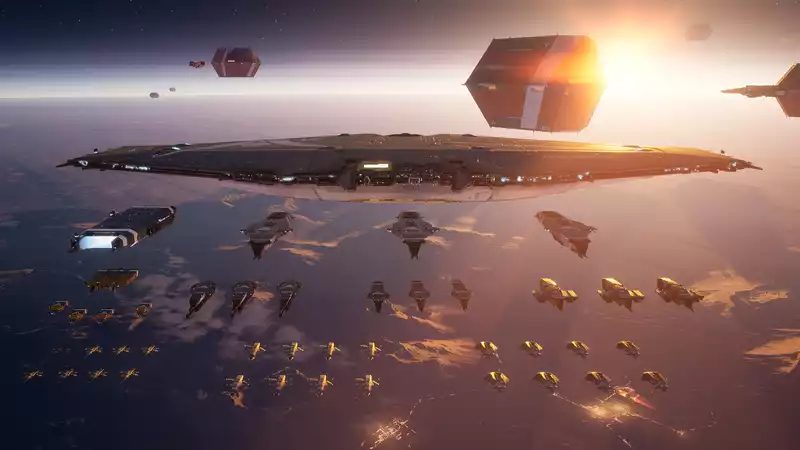This is a difficult decision: should clicking on a unit in an RTS repeat the comfortable traditional confirmations of "ready", "awaiting orders", etc., or should we evolve the unit bark beyond common assertives such as Command & Conquer and Warcraft? ....... For the upcoming "Homeworld 3," Blackbird Interactive is taking the latter position, stating that it is committed to unit-bark innovation and that the "scale of chatter design" in RTS is the largest in the series' history.
These comments are from the new Homeworld 3 Developer Update, which also mentions Blackbird's work on pre-rendered cutscenes and in-engine environment rendering. There is some strong nebula work near the bottom of the post that deserves praise, but the large section in the middle titled "No one can hear you scream" caught my attention.
"Of the four audio design pillars we have in 'Homeworld 3,' this is the one that has driven Ship Pilot's speech the most: humanizing the fleet," wrote audio director Dave Renn. If you've played a lot of real-time strategy games, you're familiar with the "bark" that units make when they give orders. 'Zug, zug,' and so on."
"But a lot has changed since the golden age of real-time strategy. We could have stuck to tradition, but we chose to innovate and create a speech system that brings your fleet to life and immerses you in the interactivity and battles of the moment.
According to Len, the barking of units in Homeworld 3 should tell the player two things: "information" and "flavor." To achieve this, Blackbird borrowed the format of a sports broadcast and gave each ship a play-by-play announcer and a color commentator. The commander would concentrate on "direct responses to player commands, notifications of key events such as contact with enemy ships, and selected flavor events," while the tactical officer would "concentrate on contextual conversational chatter."
What I find most interesting is that Blackbird has decided to do away with the idea of units talking to you, the clicking player, as they did in Homeworld 2 and every other RTS I can think of. (I have not played every RTS that has ever existed, so maybe there was a true pioneer of chatter who did this back in the 90s, but I don't recall.)
"An important guiding principle in both the description and design of speech events is that ships do not react to players. They do react to each other."
So instead of saying something like, "Confirmed, we will begin the docking procedure," the ship you have ordered to dock with the carrier tells the carrier's docking control, "This is the lead flight about to descend, please echo back," and the carrier's Docking Control Officer responds. An example of this dialog can be seen in the video below.
If you are far away from the docking ship, i.e., whatever the case may be if you are the orderly floating in space, you will hear only the first line of the conversation, not the full text. Renn writes, "This way, the player's approval of commands is always heard, and additional flavor lines don't clutter or disrupt the soundstage."
Another example:
Ships don't just talk to each other when you are interacting: the tactical offer has "5-15 contextual calls and 5-15 contextual response choices" for various situations, like flying through a nebula, as you play. catch snippets of those conversations.
There is something telling about the classic Warcraft pion "Ready to work" - after hearing it 20,000 times, you really get attached to that silly bark. I don't know if I'm ready to accept an RTS unit that doesn't talk to me, whatever the fourth wall is, but kudos to Blackbird for breaking the RTS mold.
You can read the full chat breakdown (and the one about cinematics and graphics) in Steam's "Homeworld 3" developer update. The strategy game was delayed earlier this year and is now slated for release in February 2024. As for the reason for the postponement, Blackbird said at the time that it was simply because they wanted to make the game better: "This process takes time. Especially to raise the level of what players can experience in the world of Homeworld.
.

Comments